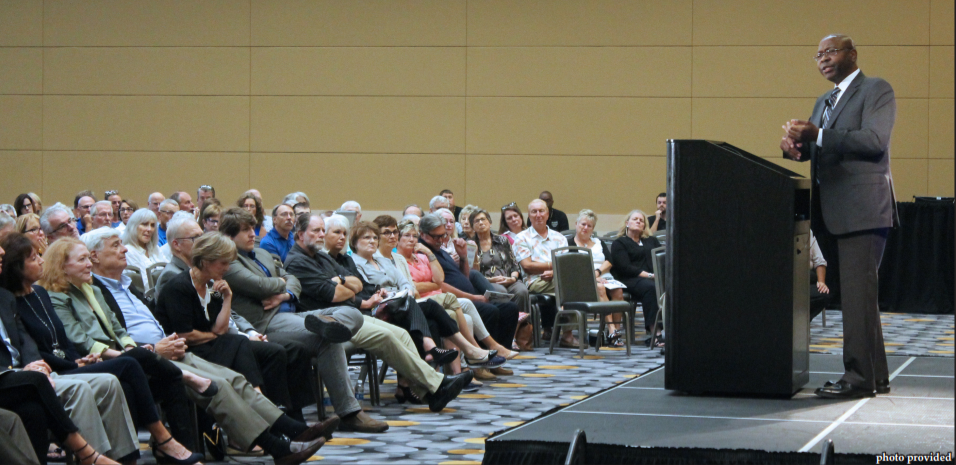Author and journalist speaks at second Sinai forum
Jason L. Riley speaks to audience members at Sinai Forum on Sept. 24.
Manhattan Institute fellow Jason L. Riley spoke at the second Sinai Forum and discussed his book, “False Black Power?” as well as how African Americans should focus on economic and cultural improvement and not political success on Sept. 24 at the Westville campus.
Riley, who is also a contributor to Fox News and a columnist for The Wall Street Journal, said political activity may help a racial or ethnic group advance, but this activity is not the most efficient way for improvement.
By the time Barack Obama became the first black president, more than 10,000 black people had been elected to office. Black mayors had created powerful political machines, but the poor saw economic declines during their administrations, according to Riley.
“Human capital has proven to be far more important than political capital when it comes to getting ahead,” he said.
Riley said there are some policies that prevent people from rising economically, such as minimum wage and school choice. He said if a government policy conflicts with self-development, the policy might hurt more than it helps.
“Judging from history, blacks ultimately must help themselves,” Riley said.
Riley also said people should talk more about the role culture plays. According to Riley, 70 percent of black children are raised by a single parent and boys are 70 percent more likely to be incarcerated if their fathers are not around. He said businesses are fleeing black neighborhoods because of violence.
Riley also discussed the value of charter schools and problems with public schools.
High-performing charter schools are helping narrow the racial gaps, according to Riley. He opposed the idea that charter schools attract students who would succeed and said that many parents feel charter schools are safer environments for their children and send them there.
“Bad schools stay open because they continue to provide jobs for adults,” Riley said.
Al Whitlow, member of the Michigan City Council and former school associate superintendent, was one of the first African-Americans elected in Michigan City when he won his first term in 1971. He said charter schools take away public funds and good students from public schools.
“Maybe [the charter school model] works in some places, but it doesn’t work everywhere,” Whitlow said.
Timothy Sanders, director of Engagement and Government Liaison, agreed that public schools can sometimes be just for jobs. From his time working for Senators Richard Lugar and Dan Quayle, Sanders recalled seeing student numbers drop in Gary while the number of administrators stayed the same.
Sanders said it was a great opportunity, especially for a university, to host someone with a perspective not commonly heard.


